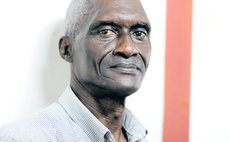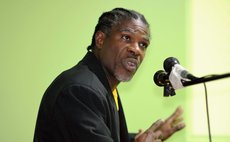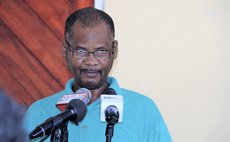Dominica: an Obituary
"God is dead" proclaimed the German philosopher Friedrich Nietzsche, "…we have killed him". This bold statement was made as a critique of contemporary 19th Century European society. But Nietzsche could have been talking about Dominica in the 21st Century. God is dead in the heart and mind of Dominicans. We have killed God. The death of God has meant the death of Dominica. Dominica is dead. We have killed it. Forgive them Lord for they know not what they do. Let us pause for a moment's silence to pay our last respects to this isle of natural splendour and beauty, whose vital organs, from the head to the heart, from the state to law enforcement, to education and the family, have ceased to function.
Dominica I lay thee down to rest with the epitaph:
Here lies Dominica, the isle of beauty and splendour, whose citizens forgot about the first principles of personal, state and societal self-governance, whose slogan was "Nou konnet viv", meaning we know how to party and make noise, irrespective of the social, psychological, emotional and economic cost, but did not know how to think. Here lies Dominica, abused by its citizens who had no love of self or for others; who did not understand the meaning of silence in the mind, heart and soul and who did not cultivate a peaceful environment where God could flourish; who were as silent in life about the things that matter as they are in death. RIP Waitukubuli.
The death of God, the death of the higher self, created a sickness, a tumour in the soul of Dominica which proved fatal. The cancer began at the head with the state and worked its way to the heart and periphery organs, the judiciary, law enforcement, education, the family, to the citizens of the land. The state and its organs lost sight of the moral and legal ideals that governs and guides a nation and its people. The state, the judiciary, and law enforcement ignored the rule of law at every opportunity, demonstrating their disrespect and devaluation of the citizens of the land and a complete disregard for their rights and welfare. The violation of the constitution and other misdemeanours by the state are well-documented examples of this. The laws protecting the environment, the rights of women and children and The Noise Abatement Act, are other examples where those who were sworn to uphold the law ignore it, allowing people to do as they please, making Dominica, in effect, a lawless state.
The death of the higher self and its symptoms at the highest level mutated to the citizens themselves, who disregard the rule of law, the well-being and welfare of each other and their environment. There is a complete disintegration of the moral standards that guide the family and relations in the wider society. Abuse within the family is common. Men routinely violate the rights of women and both routinely violate the rights of their children. Furthermore parents abdicated responsibility in raising their children. There are no moral principles and guidelines by which children live. The values and beliefs children internalise are taken from the loudspeaker culture, che ba sa'w, the rum shop and television. In the wider society people trample on their neighbours to satisfy their cravings. The transformation of Dominica into a bacchanalian state characterised by a mindless sewo, loudspeaker culture and noise and the dispirited souls on the streets of the capital, whose soulless eyes reflect the state of the nation, are also symptomatic of the illness and death of the nation.
Dominica died at the precise moment that its moral foundation, the death of the higher self, perished at the level of the state, the judiciary, law enforcement, education, the family and the public at large. Many reported on the symptoms of the sickness that caused Dominica's death. A great deal has been written and spoken about the corruption, the violation of the law, from the constitution to The Noise Abatement Act, the dysfunction of the judicial system and law enforcement, the abuse of our women and children, a moribund mentality that has ceased to think about its condition, the state of the society and culture in which it lives, about the character of the environment that surrounds it, a mind that has in effect gone to sleep. But these commentators failed to realise that Dominica was dead.
The silence of Dominicans about the things that matter is yet another symptom of the death of Dominica. The silence is so profound that it is deafening. People are numb to events that affect them. From child abuse and the abuse of our women, to noise pollution and pollution of the physical environment and violation of the rule of law, all are greeted with a deathly silence and docile passivity. Yet these same people are extremely vocal when their party is disrupted.
Dominica was a nation with a deep sense of community, where the adage that it took a village community to raise a child was a truism, and where people genuinely cared what happened to their neighbours. This must be what Chubby, the sage of Dominican music, was referring to in his refrain to bring back the milk and honey. This is perhaps an ideal. But Dominica can attain this ideal. The alternative is a moribund, inert state with a veneer of progress that dazzles an unthinking populace who have gone to sleep. No society can claim to be truly progressive without those values.
Dominica can be revived not as a Frankenstein monster, a creature in search of a soul but as a phoenix rising from the ashes. Dominica can be resurrected by the restoration of the higher self, the rule of law, and respect for the human rights of each citizen, and by creating the right environment where every citizen is valued, respected and able to fulfil the enormous potential with which they were born.
Colton Paul (The Centre for Inner Peace)




